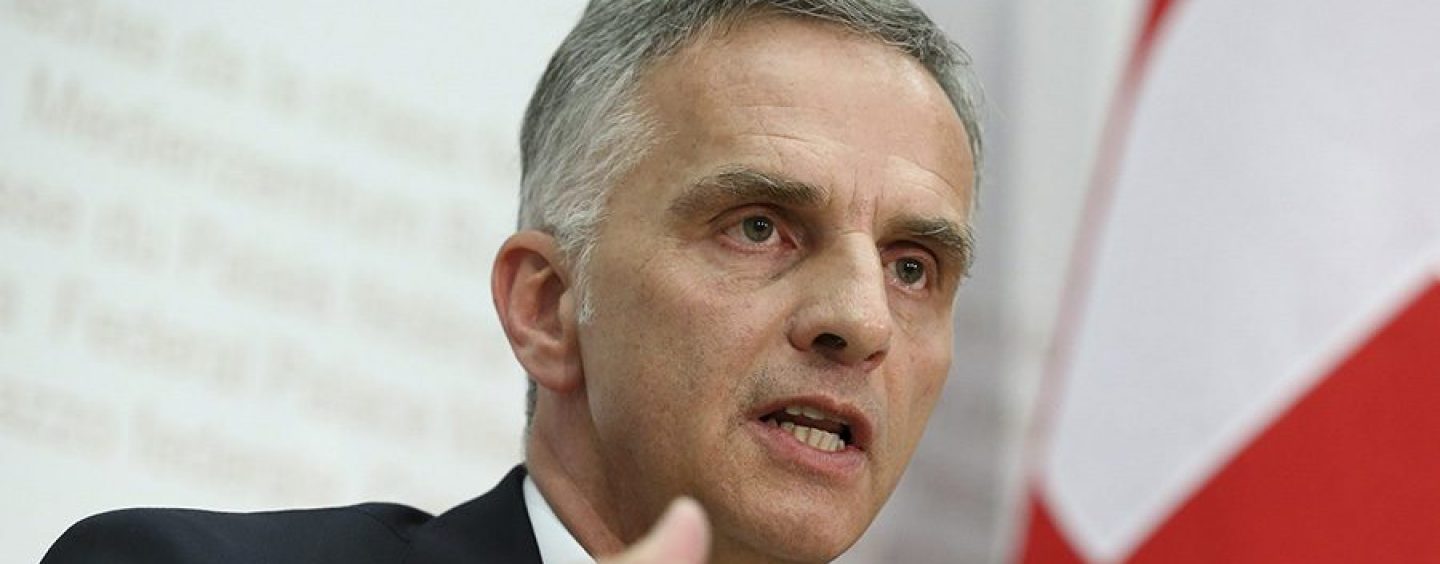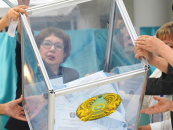
Switzerland’s Stability is The Result of Its Political System Based on Federalism
By Rovshan Pashazadeh
An Interview with Mr Didier Burkhalter, Minister of Foreign Affairs of the Switzerland.
AT: Minister, Switzerland has attracted people from all over the world for centuries. Your country is rightly regarded as one of the most stable countries in Europe. The policy of long-term monetary support and banking secrecy has made Switzerland a place where investors are most confident about the security of their money. Could you please tell us what the secret of the stability of your country is?
There is no secret as such, but a long history. Switzerland’s stability is the result of its political system based on federalism, participatory democracy and consensus, of its economy driven by individual initiative and innovation, and of its cultural and religious diversity. Our country has experienced difficult phases and there have been tensions and wars over questions of politics and religion. Moreover for many centuries Switzerland was a country of emigration.
Today Switzerland has carved out a significant place for itself on the international scene, taking its size into account. This has a number of implications for us. We are aware for example of the importance of our international commitments. As for our financial centre, which is one of the 10 biggest in the world, the Federal Council (government) has decided to develop a strategy to guarantee its credibility, its conformity to fiscal rules and its competitiveness. In this period of globalisation, interdependence has become both closer and more complex. This is why Switzerland attaches central importance to activities to ensure global stability and respect for international law. We are active in the promotion of peace, respect for human rights and the rule of law as well as the fight against poverty and protection of the environment through development cooperation. It is only by contributing to stability throughout the world that we will be able to maintain the favourable situation that Switzerland enjoys today.
AT: Over the past 10 years, relations between Switzerland and Azerbaijan have been developing dynamically. The mutual high-level visits that have taken place in recent years, the establishment of groups of friendship in the legislatures, the implementation of economic projects and the holding of days of culture are indicators of the development of bilateral relations. Can you please elaborate on Switzerland’s unusual interest in the smallest Caspian littoral state?
Relations between the two countries are particularly important, not only because of our economic cooperation and energy policy, but also because Azerbaijan is a member of the group chaired by Switzerland in the Bretton Woods Institutions. The intensification of our cooperation in the fields of energy, economy and culture as well as the respect for human rights and basic rights are among our main objectives in Azerbaijan. In addition, Azerbaijan plays a key role in the economic and political stability of the Caucasian region as a whole. On top of this, the Azeri contribution to the supply of petrol and gas to Switzerland as well as the construction of oil and gas pipelines to facilitate their supply are also critically important.
AT: How do you see further cooperation between our countries on the more global Caspian-European scale?
In terms of energy security, the Caspian Sea region is becoming increasingly important globally and for Switzerland. The meetings of the president of the Confederation in 2011 with the heads of state of Georgia and Armenia underlined the good relations that Switzerland enjoys with these countries in a region that is driven with numerous conflicts. Activity on behalf of peace is one of Switzerland’s priorities, along with political, economic and technical cooperation.
AT: Switzerland is interested in the development of cooperation with Azerbaijan in the energy sphere. In 2007, Azerbaijan and Switzerland signed a memorandum on energy security and cooperation. Has your country developed any new initiatives since then which could contribute to energy security in Europe?
Switzerland, together with a number of other countries that are not members of the EU (Azerbaijan, Turkey, the United Arab Emirates and Russia) is developing a number of energy partnerships designed to promote renewable sources of energy and energy efficiency in countries that export fossil fuels. These partnerships are also linked to the south transport corridor for natural gas, i.e. a gas pipeline linking the Caspian Sea to Europe. At the moment we are witnessing a race to open such a pipeline. One such project is the Trans Adriatic Pipeline (TAP), in which the Swiss company EGL is strongly involved. This project is officially supported by Switzerland.
AT: As you know, in 1993 Azerbaijan lost control over almost 20 per cent of its territory because of the Nagorno-Karabakh military conflict with Armenia. Although the UN Security Council has adopted four resolutions demanding withdrawal from the occupied Azerbaijani lands, Yerevan still ignores the demand of the UN Security Council. What are the views of Switzerland about the settlement of the conflict and the restoration of the territorial integrity of the Azerbaijan Republic?
Switzerland believes that the Nagorno-Karabakh dispute can be resolved only by peaceful means and that the Minsk Group of the OSCE is the right format in which to find a solution. This framework has made it possible to avoid a resort to military means by the parties to the conflict. We are in regular contact with the co-chairs of the Minsk Group (OSCE).





